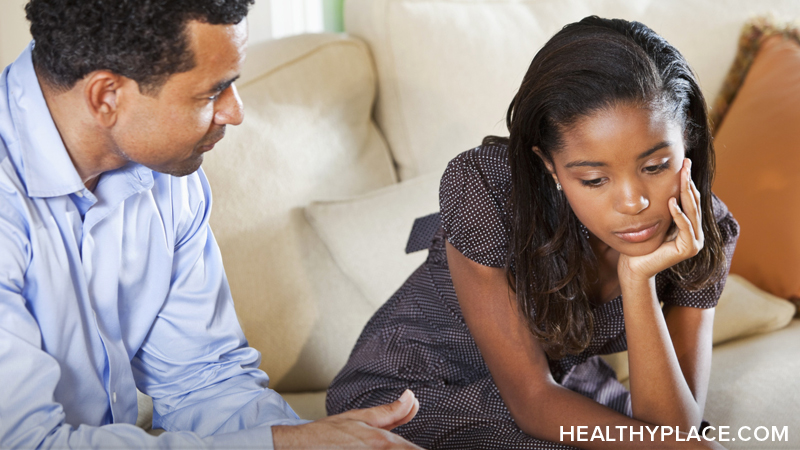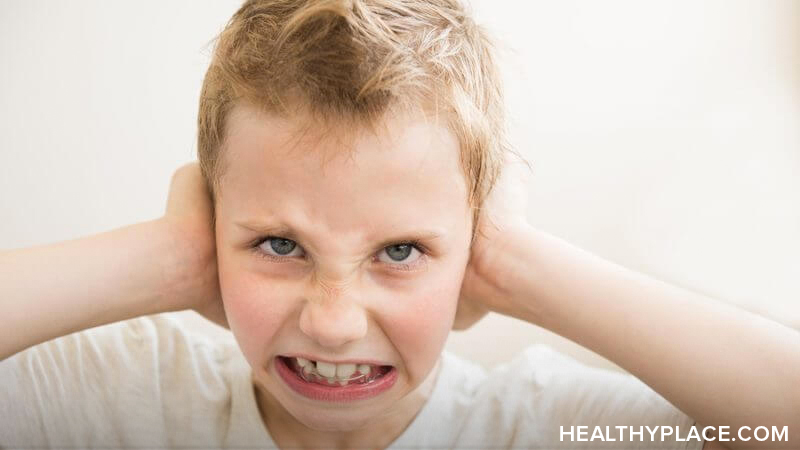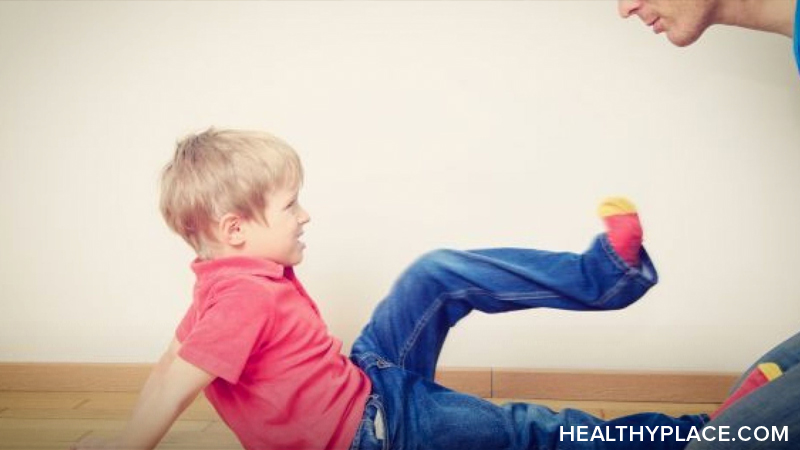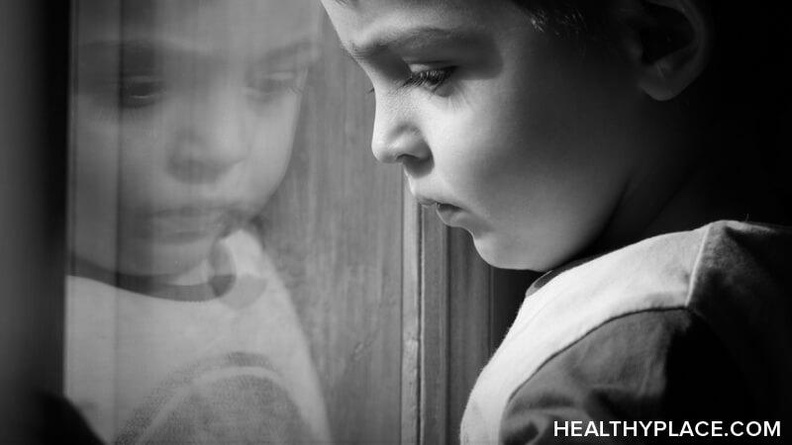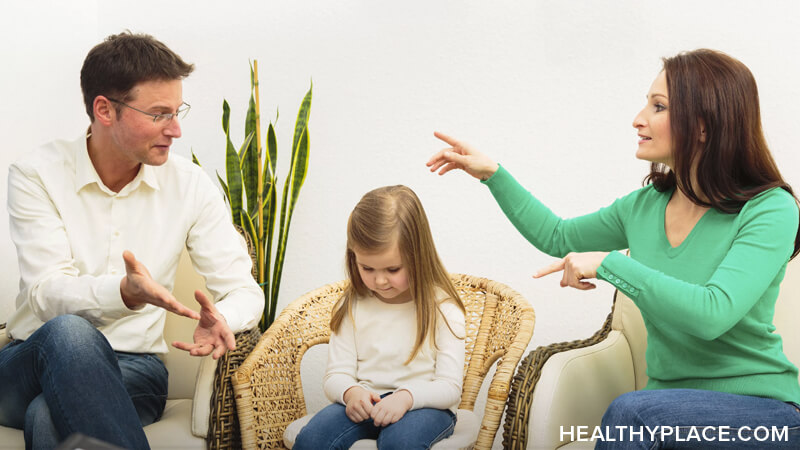
What is Parenting? What Does It Mean to be a Parent?
Harper, D.G. (2017). What does it mean to be a parent? Proud 2 Parent. Retrieved April 2019 from https://beproudtoparent.org/2017/09/25/what-does-it-mean-to-be-a-parent/
Parenting. (n.d.). American Psychological Association. Retrieved April 2019 from https://www.apa.org/topics/parenting
Parenting. (n.d.). Cambridge Dictionary. Retrieved April 2019 from https://dictionary.cambridge.org/us/dictionary/english/parenting
Parenting. (n.d.). Collins Dictionary. Retrieved April 2019 from https://www.collinsdictionary.com/us/dictionary/english/parenting
Parenting. (n.d.). Dictionary.com. Retrieved April 2019 from https://www.dictionary.com/browse/parenting
Parenting. (n.d). Merriam-Webster. Retrieved April 2019 from https://www.merriam-webster.com/dictionary/parenting
Parenting 101: What You Must Know about Raising Kids
Counseling Staff. (2015). The four c’s of parenting with Dr. Nathan Perron. Northwestern University. Retrieved April 2019 from https://counseling.northwestern.edu/blog/Four-Cs-Of-Parenting/
Daniels, N. (n.d.). Parenting 101: A Child Therapist’s 4 Ingredients for Good Parenting. AT Parenting Survival Guide. Retrieved April 2019 from https://www.anxioustoddlers.com/good-parenting/#.XMiPPfZFy2Q
Parenting 101. (n.d.). Child Development Institute. Retrieved April 2019 from https://childdevelopmentinfo.com/how-to-be-a-parent/parenting/#.XMiHK_ZFy2Q
Positive parenting tips. (2019). Center for Disease Control and Prevention (CDC). Retrieved April 2019 from https://www.cdc.gov/ncbddd/childdevelopment/positiveparenting/index.html
Shaw, G. (2015). Top 10 parenting tips. WebMD. Retrieved April 2019 from https://www.webmd.com/parenting/guide/top-ten-parenting-tips#1
Do Mom and Dad Still Have Differing Parental Roles?
5 things you should know about the importance of fathers. (2017). Child & Family Research Partnership. Retrieved May 2019 from https://childandfamilyresearch.utexas.edu/5-things-you-should-know-about-importance-fathers
Boehlke, J. (n.d.). What is the role of the mother in a typical american family? Livestrong. Retrieved May 2019 from https://www.livestrong.com/article/70779-role-mother-typical-american-family/
CRFP Policy Brief B.026.0217. (2017). Supporting fathers and strengthening families. Child & Family Research Partnership. Retrieved May 2019 from https://childandfamilyresearch.utexas.edu/supporting-fathers-and-strengthening-families
Dual role of parents, the: providing nurture and structure. (n.d.). The Center For Parenting Education. Retrieved May 2019 from https://centerforparentingeducation.org/library-of-articles/discipline-topics/role-of-parents/
Importance of a father’s involvement, the. (n.d.). Parents. Retrieved May 2019 from https://www.parents.com/parenting/dads/issues-trends/importance-of-fathers-involvement/
Oliker, D.H. (2011). The importance of fathers: Is father’s day real? Psychology Today. Retrieved May 2019 from https://www.psychologytoday.com/us/blog/the-long-reach-childhood/201106/the-importance-fathers
Role of parents, the. (2012). PBS Kids for Parents. Retrieved May 2019 from http://www.pbs.org/parents/thrive/the-role-of-parents
Santiago-Rodriquez, T. (2012). The 10 roles a father plays in his child’s life. Smart Parenting. Retrieved May 2019 from https://www.smartparenting.com.ph/life/love-relationships/the-call-to-fatherhood-what-being-a-father-is-all-about/page/3?
What Are Parental Rights and Responsibilities?
Anderson, J. (2013). Roles, responsibilities, and rights of parents. American College of Pediatricians. Retrieved May, 2019 from https://www.acpeds.org/the-college-speaks/position-statements/parenting-issues/the-roles-responsibilities-and-rights-of-parents
Bean, S. (n.d.). Parenting responsibilities: 10 things you are (and aren’t) responsible for as a parent. EmpoweringParents.com. Retrieved May 2019 from https://www.empoweringparents.com/article/parenting-responsibilities-10-things-you-are-and-parent-responsible-for-as-a-parent/
LaMance, K. (2018). Parental rights. LegalMatch. Retrieved May 2019 from https://www.legalmatch.com/law-library/article/what-are-parental-rights.html
LaMance, K. (2018). What are parental rights? LegalMatch Retrieved May 2019 from https://www.legalmatch.com/law-library/article/parental-rights-lawyers.html
Sutton, A. (n.d.). Responsibilities and duties of parents. Livestrong. Retrieved May 2019 from https://www.empoweringparents.com/article/parenting-responsibilities-10-things-you-are-and-parent-responsible-for-as-a-parent/
What is Good Parenting?
Clark, L. (2012). Good parenting is more important than good schooling in determining your child’s academic success. Daily Mail. Retrieved May 2012 from https://www.dailymail.co.uk/sciencetech/article-2216202/Good-parenting-important-good-schooling-determining-childs-academic-results-says-new-research.html
Grose, M. (2015). The definition of good parenting. Parenting Ideas. Retrieved May 2019 from https://www.parentingideas.com.au/blog/the-definition-of-good-parenting
Stöppler, M.C. (n.d.). What are the 10 principles of good parenting? MedicineNet. Retrieved May 2019 from https://www.medicinenet.com/parenting/article.htm#what_are_the_10_principles_of_good_parenting
What is good parenting—the real definition you might not know. (n.d.). MyParenting Journal. Retrieved May 2019 from https://www.myparentingjournal.com/what-is-good-parenting/
Wong, D. (2018). 12 skills that good parents have (backed by science). Daniel Wong. Retrieved May 2019 from https://www.daniel-wong.com/2018/01/08/good-parenting-skills/
Good Parenting Qualities and Characteristics You Can Develop
Blau, L. (n.d.). What are the essential characteristics of a good parent? Livestrong. Retrieved May 2019
from https://www.livestrong.com/article/560215-what-are-the-essential-characteristics-of-a-good-parent/
Lee, K. (2018). What are traits of good parents? Verywell family. Retrieved May 2019 from
https://www.verywellfamily.com/things-that-good-parents-do-620051
Sharma, V. (n.d.). 20 good character traits that will help your kids grow up to be happy, successful, and
loved by all. A Fine Parent. Retrieved May 2019 from https://afineparent.com/building-character/good-character-traits.html
Good Parenting Skills That Will Benefit Your Family
10 good parenting tips. (2019). Parenting for Brain: Healthy Brain. Happy Kid. Retrieved May 2019 from https://www.parentingforbrain.com/how-to-be-a-good-parent-10-parenting-tips/
Blau, L. (n.d.). What are the essential characteristics of a good parent? Livestrong. Retrieved May 2019 from https://www.livestrong.com/article/560215-what-are-the-essential-characteristics-of-a-good-parent/
Lee, K. (2018). What are traits of good parents? Verywell family. Retrieved May 2019 from https://www.verywellfamily.com/things-that-good-parents-do-620051
Sharma, V. (n.d.). 20 good character traits that will help your kids grow up to be happy, successful, and loved by all. A Fine Parent. Retrieved May 2019 from https://afineparent.com/building-character/good-character-traits.html
Top 5 Parenting Skills You Will Need in the Digital Age
Browning, D. (2012). Why cell phones are bad for parenting. Time. Retrieved May 2019 from http://ideas.time.com/2012/05/17/why-cell-phones-are-bad-for-parenting/
Kids & Tech: Tips for parents in the digital age. (2018). Healthychildren.org. Retrieved May 2019 from https://www.healthychildren.org/English/family-life/Media/Pages/Tips-for-Parents-Digital-Age.aspx
Parenting in the digital age. (n.d.). Bradley Hospital. Retrieved May 2019 from https://www.bradleyhospital.org/parenting-digital-age
Parents of young children: Put down your smartphones. (2016). healthychildren.org. Retrieved May 2019 from https://www.healthychildren.org/English/family-life/Media/Pages/Parents-of-Young-Children-Put-Down-Your-Smartphones.aspx
Schofield Clark, L. (2013). Flipping parenting: My family’s media and tech agreement. Psychology Today. Retrieved May 2019 from https://www.psychologytoday.com/us/blog/parenting-in-digital-age/201301/flipping-parenting-my-familys-media-and-tech-agreement
Schofield Clark, L. (2013). Rethinking the role of digital media in family life. Psychology Today. Retrieved May 2019 from https://www.bradleyhospital.org/parenting-digital-age
Why to limit your child’s media use. (2016). healthychildren.org. Retrieved May 2019 from https://www.healthychildren.org/English/family-life/Media/Pages/The-Benefits-of-Limiting-TV.aspx
Develop Your Parenting Philosophy: Strategies That Make You Great
Bright Horizons Team. (n.d.). Parenting philosophy: Simplicity parenting. Bright Horizons. Retrieved May 2019 from https://www.brighthorizons.com/family-resources/parenting-tips-simplified-parenting-philosophy
Orlans, M. (2015). 10 top parenting strategies. Evergreen Psychotherapy Center. Retrieved May 2019 from https://www.evergreenpsychotherapycenter.com/the-10-best-parenting-strategies/
Wagenhals, D. (2015). What’s your philosophy of parenting? Lakeside. Retrieved May 2019 from https://lakesidelink.com/blog/lakeside/whats-your-philosophy-of-parenting/
Waters, I. (n.d.). The one word that describes your parenting. Livelovegrow. Retrieved May 2019 from https://lovelivegrow.com/the-one-word-that-describes-your-parenting/
How Your Parenting Style Can Affect Your Child’s Mental Health
Coste, B. (n.d.). 12 Different types of parenting styles and child discipline strategies. Positive-Parenting- Ally.com Retrieved May 2019 from https://www.positive-parenting-ally.com/types-of-parenting-styles.html
Boggs, J. (n.d.). Parenting styles and mental health: Measuring the relationship between authoritative, authoritarian, and permissive parenting styles and their effects on mental health. University of South Florida St. Petersburg. Retrieved May 2019 from http://www.usfsp.edu/scl/files/2018/05/Parenting-Styles-and-Mental-Health-by-Jonathan-Boggs.pdf
Broderick, P.C. & Blewitt, P. (2006). The life span: Human development for helping professionals, 2nd ed. Upper Saddle River, NJ: Pearson Merrill Prentice Hall
Morin, A. (2019). 4 types of parenting styles and their effects on kids. Verywell family. Retrieved May 2019 from https://www.verywellfamily.com/types-of-parenting-styles-1095045
Parenting style may affect child’s mental health. (2011). HealthDay. Retrieved May 2019 from https://consumer.healthday.com/mental-health-information-25/anxiety-news-33/parenting-style-may-affect-child-s-mental-health-655442.html
Parenting styles. (n.d.). ACT: A Parenting Program by the American Psychological Association. Retrieved May 2019 from https://www.apa.org/act/resources/fact-sheets/parenting-styles
Turner, E.A. (2018). Parenting effects on children: What’s your parenting style? Psychology Today. Retrieved May 2019 from https://www.psychologytoday.com/us/blog/the-race-good-health/201802/parenting-effects-children-what-is-your-parenting-style
Vassar, G. (2011). Recognizing shame-based parenting. Lakeside. Retrieved May 2019 from https://lakesidelink.com/blog/lakeside/recognizing-shame-based-parenting/
Weiss McGolerick, E. (2011). 5 parenting styles for a new generation. SheKnows. Retrieved May 2019 from https://www.sheknows.com/parenting/articles/819528/5-parenting-styles-for-a-new-generation/
Parenting Tips for When Your Tween Has a Meltdown
What you should know about meltdowns…from a tween on the spectrum. Lemon Lime Adventures. Retrieved May 2019 from https://lemonlimeadventures.com/what-you-should-know-about-meltdowns-from-a-tween-on-the-spectrum/
Garey, J. (n.d.). 10 tips for parenting preteens. Child Mind Institute. Retrieved May 2019 from https://childmind.org/article/10-tips-for-parenting-your-pre-teen/
Hill, E. (2017). Parenting advice for the teen/tween emotional meltdown. Great Falls Tribune. Retrieved May 2019 from https://www.greatfallstribune.com/story/life/2015/03/27/parenting-advice-teentween-emotional-meltdown/70546198/
Morin, A. (n.d.). Difference between tantrums and meltdowns, the. Understood. Retrieved May 2019 from https://www.understood.org/en/learning-attention-issues/child-learning-disabilities/sensory-processing-issues/the-difference-between-tantrums-and-sensory-meltdowns
Stiffelman, S. (2017). 11-year-old has terrible meltdowns when she’d frustrated! Susan Stiffelman. Retrieved May 2017 from https://susanstiffelman.com/tween-meltdowns/
What you should know about meltdowns…from a tween on the spectrum. Lemon Lime Adventures. Retrieved May 2019 from https://lemonlimeadventures.com/what-you-should-know-about-meltdowns-from-a-tween-on-the-spectrum/
Dealing with Parenting Advice You Don’t Want or Need To Hear
Lore, D. (2015). Beware the know it alls: How to handle unsolicited baby advice. WebMD. Retrieved May 2019 from https://www.webmd.com/parenting/baby/features/beware-the-know-it-alls-how-to-handle-unsolicited-baby-advice#1
Miller, K. (2014). How to deal with unwanted parenting advice. Women’s Health. Retrieved May 2019 from https://www.womenshealthmag.com/life/a19983307/unwanted-parenting-advice/
Pantley, E. (n.d.). Handling unwanted parenting advice: A guide for new parents. Child Development Institute. Retrieved May 2019 from https://childdevelopmentinfo.com/ages-stages/baby-infant-development-parenting/unwanted-parenting-advice/#.XOGB1_ZFyvw
Parenting Goals and Expectations Must Pass the Reality Test
Farmer-Kris. (2019). Taking small steps to parenting goals. PBS Kids for Parents. Retrieved May 2019 from https://www.pbs.org/parents/thrive/taking-small-steps-to-parenting-goals
Hudson, M. (n.d.). Realistic expectations for great parenting. North Shore Magazine. Retrieved May 2019 from http://www.familyservices.bc.ca/images/stories/pdfs/ArticleExpectations_Nov08.pdf
Importance of setting parenting goals, the. (n.d.). Valentin & Blackstock Psychology. Retrieved May 2019 from http://www.vbpsychology.com/the-importance-of-setting-parenting-goals/
Mendes, I. (2015). 10 totally attainable parenting goals for the new year. Today’s Parent. Retrieved May 2019 from https://www.todaysparent.com/blogs/10-totally-attainable-parenting-goals-for-2015/
Miller, K. (2014). How to deal with unwanted parenting advice. Women’s Health. Retrieved May 2019 from https://www.womenshealthmag.com/life/a19983307/unwanted-parenting-advice/
Morin, A. (2019). Parenting tips from 10 parenting experts. verywell family. Retrieved May 2019 from https://www.verywellfamily.com/parenting-tips-from-10-parenting-experts-1095042
Schwartz, N. (n.d.). How to set (and achieve!) your parenting goals. Imperfect Families. Retrieved May 2019 from https://imperfectfamilies.com/how-to-set-and-achieve-your-parenting-goals/
Recovering from Parenting Fails
Lange, A. (n.d.). 4 ways to recover from your parenting failures. Organized Motherhood. Retrieved May 2019 from https://www.organizedmotherhood.com/4-ways-to-recover-from-your-parenting-failures/
Lindholm, M. (2018). Learn from my parenting mistakes. Psychology Today. Retrieved May 2019 from https://www.psychologytoday.com/us/blog/more-women-s-work/201810/learn-my-parenting-mistakes-0
What Does Bad Parenting Look Like?
Arora, M. (2018). Bad parenting signs & how it can affect your child. First Cry Parenting. Retrieved May 2019 from https://parenting.firstcry.com/write-for-us/
CureJoy Editorial. (2018). Signs of bad parenting. Are you one of them? CureJoy. Retrieved May 2019
from https://www.curejoy.com/content/bad-parenting-12-signs-bad-parenting-one/
Effects of bad parenting on your child. (2014). American Society for the Positive Care of Children (American SPCC). Retrieved May 2014 from https://americanspcc.org/2014/07/17/effects-bad-parenting-child/
Jain, A.S. (2018). 8 signs of bad parenting that every parent should know. We Have Kids. Retrieved May 2019 from https://wehavekids.com/parenting/Signs-of-Bad-Parenting-effects-good-parent
Richards-Gustafson, F. (n.d.). The effects of bad parenting on children. Livestrong. Retrieved May 2019 from https://www.livestrong.com/article/560572-the-effects-of-bad-parenting-on-children/
Common Parenting Issues and How To Deal with Them
Lehman, J. (n.d.). Challenging Parenting Issues: 5 of the hardest things parents face. Empowering Parents. Retrieved May 2019 from https://www.empoweringparents.com/article/5-of-the-hardest-things-parents-face-how-to-handle-the-most-challenging-parenting-issues/
Lehman, J. (2013). Good behavior is not “magic”—it’s a skill: The three skills every child needs for good behavior. At Health. Retrieved May 2019 from https://athealth.com/topics/good-behavior-is-not-magic-its-a-skill-the-three-skills-every-child-needs-for-good-behavior-2/
Lerner, C. (2019). Parenting without power struggles. PBS Kids for Parents. Retrieved May 2019 from https://www.pbs.org/parents/thrive/parenting-without-power-struggles
Overcoming 7 common parenting issues. (2017). Everyday Health. Retrieved May 2019 from https://www.everydayhealth.com/kids-health/overcoming-7-common-parenting-issues/
How Do I Raise an Emotionally Healthy Child?
7 tips to improve your child’s mental health and emotional wellbeing. Carizon. Retrieved May 2019 from https://www.carizon.ca/7-tips-improve-childs-mental-health-emotional-well/
Five critical emotional needs of children. (n.d.). The Children’s Project. Retrieved May 2019 from https://emotionallyhealthychildren.org/wp-content/uploads/2013/07/Five-Critical-Needs-English.pdf
Developing emotionally healthy children, families, schools and communities. (n.d.). Retrieved May 2019 from https://emotionallyhealthychildren.org/
Firestone, L. (2012). 7 tips to raising an emotionally healthy child. Psychology Today. Retrieved May 2019 from https://www.psychologytoday.com/us/blog/compassion-matters/201211/7-tips-raising-emotionally-healthy-child
Healy, M. (2018). How to raise an emotionally healthy child. Psychology Today. Retrieved May 2019 from https://www.psychologytoday.com/us/blog/creative-development/201901/how-raise-emotionally-healthy-child
Healy, M. (2018). The emotionally healthy child. (2018). Psychology Today. Retrieved May 2019 from https://www.psychologytoday.com/us/blog/creative-development/201810/the-emotionally-healthy-child
Peterson, T.J. (2018). What is emotional health? And how to improve it? HealthyPlace. Retrieved May 2019 from https://www.healthyplace.com/other-info/mental-illness-overview/what-is-emotional-health-and-how-to-improve-it
Vann, M.R. (2009). Raising emotionally healthy children. Everyday Health. Retrieved May 2019 from https://www.everydayhealth.com/emotional-health/raising-emotionally-healthy-kids.aspx
5 Tips for Raising a Strong-Willed Child
Markham, L. (n.d.). The strong-willed child: 11 ways to turn power struggles into cooperation. Mother.ly. Retrieved May 2019 from https://www.mother.ly/child/11-tips-for-parenting-your-strong-willed-child
Pace, A. (2019). Parenting a strong-willed child: Research says this is the best approach. Parenting from the Heart. Retrieved May 2019 from https://parentingfromtheheartblog.com/parenting-a-strong-willed-child/
Tamm, L. (n.d.). 5 highly effective tips for parenting a strong-willed child. The Military Wife and Mom. Retrieved May 2019 from https://themilitarywifeandmom.com/parenting-strong-willed-child/
Parenting Gifted Children to Succeed in Life
Amend, E. (2006). Tips for parents: Parenting the gifted child. Davidson Institute for Talent Development. Retrieved June 2019 from http://www.davidsongifted.org/Search-Database/entry/A10375
Asynchronous development. (n.d.). National Association for Gifted Children. Retrieved June 2019 from http://www.nagc.org/resources-publications/resources-parents/social-emotional-issues/asynchronous-development
Bainbridge, C. (2019). Asynchronized development in children. verywell family. Retrieved June 2019 from https://www.verywellfamily.com/asynchronous-development-1449172
Bainbridge, C. (2019). Common traits and characteristics of gifted children. verywell Family. Retrieved June 2019 from https://www.verywellfamily.com/characteristics-of-gifted-children-1449114
Bainbridge, C. (2019). Pushing vs. nurturing your gifted child’s passion for learning. verywell family. Retrieved June 2019 from https://www.verywellfamily.com/how-do-i-keep-my-child-challenged-and-stimulated-1449058
Helping your gifted child succeed. (n.d.) National Association for Gifted Children. Retrieved June 2019 from http://www.nagc.org/sites/default/files/Parent%20CK/NAGC_Helping%20Your%20Gifted%20Child%20Succeed-English.pdf
Post, G. (2015). Tips for parents of gifted children: What most parents wish they had known. Gifted Challenges. Retrieved June 2019 from https://giftedchallenges.blogspot.com/2015/08/tips-for-parents-of-gifted-children.html
Supporting gifted children. (n.d.). National Association for Gifted Children. Retrieved June 2019 from http://www.nagc.org/resources-publications/resources/supporting-gifted-children
What is giftedness? (n.d.). National Association for Gifted Children. Retrieved June 2018 from http://www.nagc.org/resources-publications/resources/what-giftedness
The Best Parenting Strategies for Highly Sensitive Children
Aron, E. (n.d.). Is your child highly sensitive? The Highly Sensitive Person. Retrieved June 2019 from http://hsperson.com/test/highly-sensitive-child-test/
DeMattia, J. (n.d.). Raising a highly sensitive child. Scary Mommy. Retrieved June 2019 from https://www.scarymommy.com/raising-highly-sensitive-child/
Edelman, J. (n.d.). A guide to parenting your spirited, emotional, or difficult child. Scary Mommy. Retrieved June 2019 from https://www.scarymommy.com/a-guide-to-parenting-your-spirited-emotional-or-difficult-child/
Healy, M. (2011). The highly sensitive child. Psychology Today. Retrieved June 2019 from https://www.psychologytoday.com/us/blog/creative-development/201106/the-highly-sensitive-child
Kuehn, L. (n.d.). Tips for parenting highly sensitive children. Cornerstones for Parents. Retrieved June 2019 from https://www.cornerstonesforparents.com/tips-parenting-highly-sensitive-children
Morin, A. (2019). 8 discipline strategies for parenting a sensitive child. Verywell family. Retrieved June 2019 from https://www.verywellfamily.com/parenting-a-sensitive-child-8-discipline-strategies-1094942
Vakil, E. (2018). 15+ parenting strategies for a highly sensitive child. Distracted Momma. Retrieved June 2018 from https://www.distractedmomma.com/15-parenting-strategies-highly-sensitive-child/
